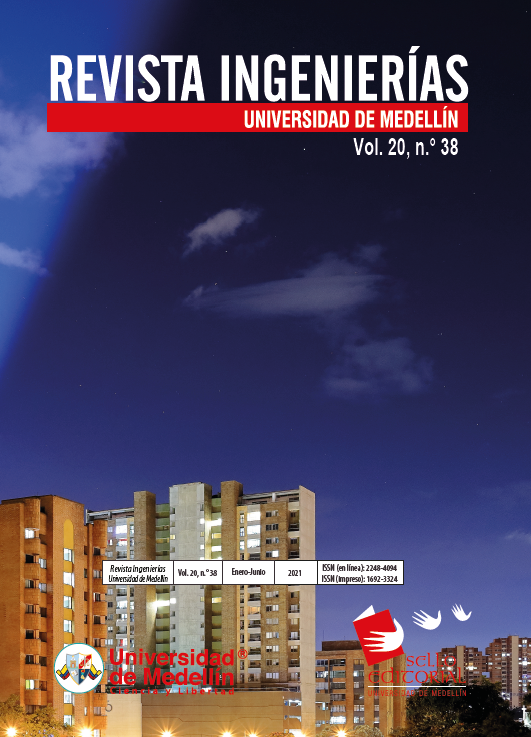Challenges of Converting an In-person Dance Course to a MOOC Course
Main Article Content
Abstract
This article presents the design experience of the 'Folk dance as cultural heritage' course, which is offered to undergraduate students from University of Cauca the 'massive online course' modality. It shows the main challenges faced in the exercise of the integration of two in-person courses, one practical and one theoretical, and its process of transformation into a MOOC. The course was designed for two academic credits with six hours of dedication per week and is offered as an elective (non-mandatory) class of the Integral Social and Human Formation (FISH) component, through a space in the MOOC Open edX platform. The integration process of the two in-person courses and their transformation into a MOOC, brought with it several challenges related to the adjustment of contents, academic activities and evaluation. This article presents how these challenges were faced in this experience. It is worth mentioning that one of the results obtained in this research is associated with the contribution of the research to the first folk dance course in MOOC modality in Latin America, what makes it an innovative educational proposal that allows the rescue of culture through the adaptation of traditional educational contents.
Article Details
References
Universidad del Cauca, 'MOOC MenTES | Inicio,' Mooc Mentes, 2018. https://www.unicauca.edu.co/moocmentes/ (accessed Dec. 14, 2020).
G. Siemens, 'Connectivism: a learning theory for the digital age. e-Learning Library,' Retrieved Sept, vol. 24, 2018, pp. 1-8, 2014.
D. Wiley, 'The MOOC Misnomer - iterating toward openness,' 2012. https://opencontent. org/blog/archives/2436 (accessed Dec. 14, 2020).
A. McAuley, B. Stewart, G. Siemens and D. Cormier, 'The MOOC model for digital practice,' 2010.
T. R. Liyanagunawardena, A. A. Adams and S. A. Williams, 'MOOCs: A systematic study of the published literature 2008-2012,' Int. Rev. Res. Open Distrib. Learn., vol. 14, no. 3, pp. 202-227, 2013.
P. J. Guo, J. Kim and R. Rubin, 'How video production affects student engagement: An empirical study of MOOC videos,' in Proceedings of the first ACM conference on Learning@ scale conference, 2014, pp. 41-50.
R. Roig-Vila, S. Mengual Andrés and C. Suárez Guerrero, 'Evaluación de la calidad pedagógica de los MOOC,' 2014.
D. Jansen and R. Schuwer, 'Institutional MOOC strategies in Europe,' Status Rep. Based Mapp. Surv. Conduct. Oct.-Dec. 2014, 2015.
M. Solarte, G. A. Ramírez and D. A. Jaramillo, 'Hábitos de ingreso y resultados en las evaluaciones en cursos en línea masivos con reconocimiento académico,' Ing. E Innov., vol. 5, 1, 2017.
M. Sanagustín, J. Maldonado and N. Morales, 'Estado del arte de adopción de MOOCs en la Educación Superior en América Latina y Europa,' MOOC-Mak. Constr. Manag. Capacit. MOOCs High. Educ. MOOC-Mak. Recuperado de: http://www. mooc-maker. org/wp-content/files/WPD1. 1_ESPAOL. pdf.
C. Alario-Hoyos, M. Pérez Sanagustín, D. Cormier and C. Delgado Kloos, 'Proposal for a conceptual framework for educators to describe and design MOOCs,' 2014.
J. R. Drake, M. O’Hara and E. Seeman, 'Five principles for MOOC design: With a case study,' J. Inf. Technol. Educ. Innov. Pract., vol. 14, 14, pp. 125-143, 2015.
O. L. Molano, 'Identidad cultural un concepto que evoluciona.,' Rev. Opera, no. 7, pp. 69-84, 2007.
D. Jaramillo-Morillo, M. Solarte, G. R. González and M. Pérez-Sanagustín, 'Follow-up of learning activities in open edx: A case study at the university of cauca,' in European Conference on Massive Open Online Courses, 2017, pp. 217-222.
M. Forehand, 'Bloom’s taxonomy,' Emerg. Perspect. Learn. Teach. Technol., vol. 41, no. 4, pp. 47-56, 2010.
Universidad del Cauca, 'MOOC| Unicauca,' MOOC Unicauca. http://selene.unicauca.edu.co/ (accessed Dec. 14, 2020).
D. A. Kolb, Experiential learning: Experience as the source of learning and development. FT press, 2014.
M. Mayorga Fernández and D. Madrid Vivar, 'Metodología de evaluación de los cursos on line,' Didáctica Innov. Multimed., 20, pp. 0001-12, 2011.





